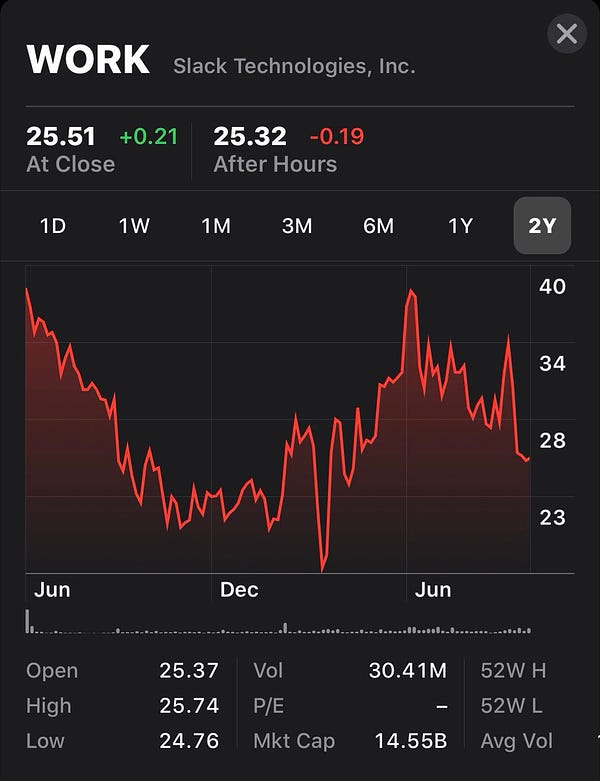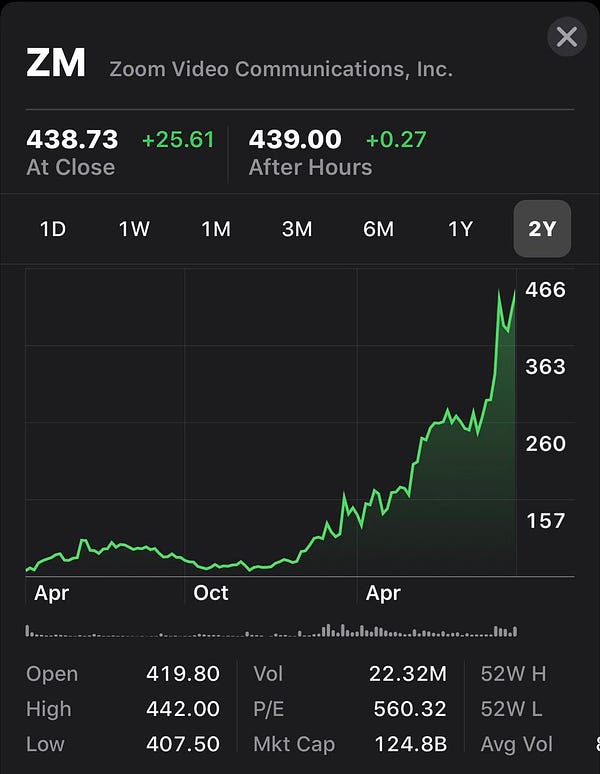Edition 40: Let's open a can of worms
This small experiment crossed 100 subscribers! Thank you everyone for your support & reading this.
We don’t need more newsletters.
The irony isn't lost on me as I am writing edition 40 of this little newsletter that I put together as a way to learn and share what I am reading with a small commentary. Thank you for reading it. #gratitude
My point about the overwhelming more newsletters is actually around two themes I am seeing :
The Morning Brews & The Skimm's. The friend you can rely on tell you about news in a quick slightly condescending tone because you aren’t mature enough to read the actual news or politics because you are a millennial. To paraphrase Peter Kafka - if you are working in finance / WallStreet, why can’t you read the financial times or WSJ - it’s literally your job. Why do you need something like Morning Brew to dumb it down for you?
The Ben Thompson effect. Everyone wants to be like Strachetry and Ben Thompson. Everyone wants the write the next big “business strategy” newsletter. They’re all written (generally speaking) by the same kind of folks, with the same kind of topics and honestly sometimes talking about the same news. The other week I had two business newsletters both writing about the FT article talking about SoftBank pumping money into stocks for public tech companies causing the prices to 📈
Speaking of public tech companies
This conversation about Slack vs Zoom nailed something that's been hard to put my finger on.
Slack's pricing doesn't make sense for a lot of companies with 10-50 employees. I have 5 people on my Slack & I'd rather pay a flat $20/mo rather in pay per seat ($8/mo).




Ofcourse Zoom also became a verb during COVID which helps & it became the default way to communicate. Although I am surprised that more people don't use Echo / Portal or Facetime. Zoom is not the most straightforward one to use.
Martech Bubble
I've said it before but there's a huge trend in marketing to partner with other martech vendors to 'share audiences' & it perpetuates the 'bubble of 8K mar-tech companies'- this tweet from Drift illustrates my point. Disclosure - this is not snark & Uberflip is a previous employer.

RocketInternet & Cloning Economy

This reminded me of AIMEE - a Skynet by an Amazon seller that looks at what's popular on Amazon & basically clones it.
The other valuable X factor that AIMEE measures, by automatically browsing buyer reviews, is what customers are saying about existing products. Accurate reviews are a constant challenge for Amazon, as some sellers, especially Chinese companies, try to skew results by generating fake five-star reviews. But AIMEE focuses more on bad reviews. If shoppers complain about the quality, or don’t like the features, or even express an interest in different colors or sizes, that presents a potential opportunity for a new brand.
What Jay is describing sounds alot like Rocket Internet - the German incubator famous for copying SV companies & localizing them for developing markets. Daraz (where Fahim a friend mentioned in last weeks letter) worked is a Rocket company in Pakistan for e-commerce. Currently he's Snapp which he described as Uber for Iran.
If you haven't heard of Rocket Internet - its fascinating. They got a ton of bad press. But most of all I honestly think without Rocket Internet - the technology economy in Pakistan & other developing countries would not have took off. They provide capital and localization to technology & technology services companies to roll out in countries where otherwise the conditions would not allow for such thing to happen.
Perhaps Rocket Internet’s intervention was necessary to spearhead the emergence of a fully-fledged entrepreneurial ecosystem in unsung places such as developing nations or… Europe. And to a certain extent, it has worked, as seen with the cases of Zalando (market cap €18bn), one of Europe’s tech jewels which was brought up in the Rocket Internet empire, and that of Jumia, which employs 5,000 employees across a dozen African countries.
A few David Sacks notes:
There's this prevailing wisdom in the twitter-verse to create audience first companies - i.e. get 10M people to signup to your newsletter & then figure out how to monetize them by selling them something. Might be a course/product or even a subscription to the newsletter.
The thing is - this 'idea' has been around and like everything on the internet gets recycled every few years.
I think what gets missed is the actual problem/solution/vision framework. I haven't done an analysis of companies but I'd bet the ones that are huge today didn't start as 'let’s build an audience & try and sell them something' but rather they saw a gap in the market & created something to solve for that.
From Product First by David Sacks:
Jack’s [Dorsey] starting point was not an understanding of how the legacy incumbents were broken or how that brokenness created a huge gap in the market. That understanding would come, but the starting point was to conceive of a simple product that would create tangible value: “When we started, we thought we were just building a piece of hardware to enable people to plug into their phone and swipe a credit card.” The original Square reader is a great example of what I’ve called a “product hook” -- a simple repeatable transaction (in this case, a swipe) that entices users to engage with a larger product. It also came with a “distribution trick”: its distinctive design, underscored by the Square logo and brand, created real-world virality. PayPal started in a similar way: The product hook was to “email money,” which also created the first distribution trick (email virality).
Personality Led Growth
Amrita (Hi Amrita!) Really put it well. I talked about Matthew Kobach & the Personality Led Growth aspect last week but I think cult following is a better way to put it.

Marketings Civil Unrest
I loved this example. I am more on the attribution side but I also think the over 'I am data-driven bro' stuff needs to be balanced with WOM & organic discovery that isn't captured by cookies. With Cookies going away - we will lean more on directional attribution & correlation then direct response reports.


What I hate it when people say it's either this or that. I think marketers have enough fights to pick that we should draw lines in the sand based on Demand vs Brand or Attribution vs Non Attribution or Creativity vs Data. Like most things, the truth lies in the middle.
Of course ABM
Last but not least - there's a lot of noise about ABM but like I've said before, you don't need a $40K piece of technology to 'do' ABM. You dont need Terminus to do ABM or Engagio (RIP). You just need to focus your efforts on your top 10 accounts & align everyone with that same common goal.
Gabriel as SalesWhale (Hey Gabriel) wrote this and I loved it for its simplicity.
Grammarly gave this an 🤓 emoji so I might have let my nerd side get the better of me this week.
Send me a note with your feedback. I love the exchange of emails this usually brings.
Huge thanks for Jess / Avinash & Katie for reviewing this and keeping me honest.
Till next time.
Kamil




